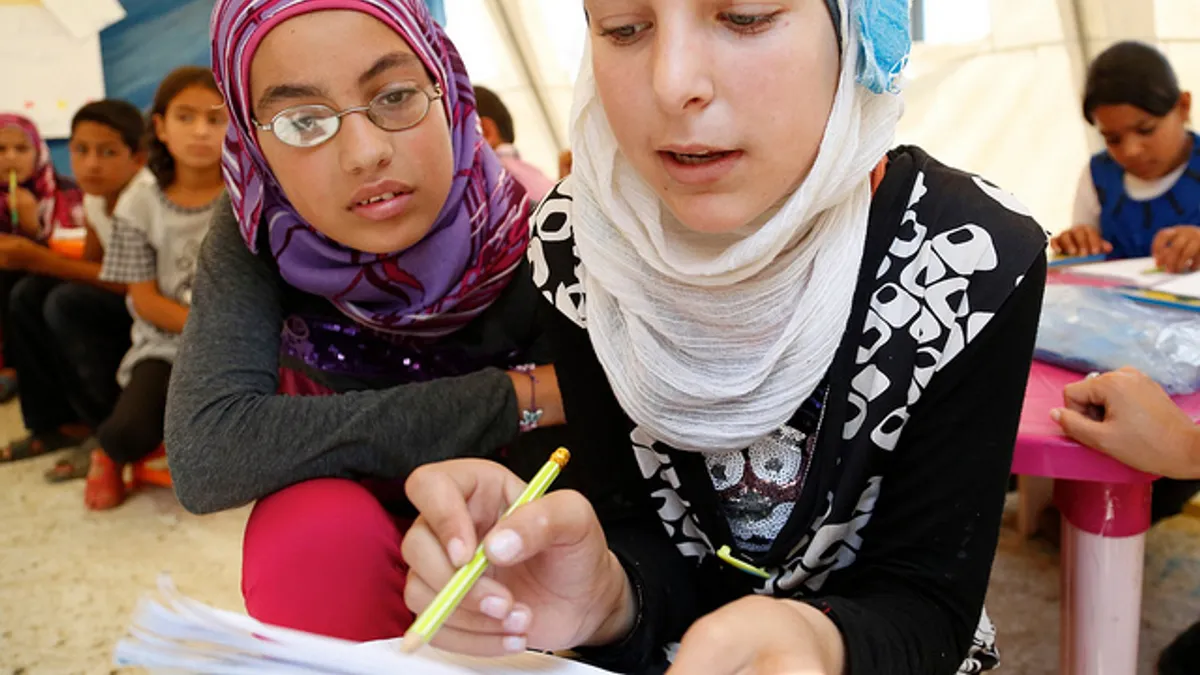Dive Brief:
- A Teachers College, Columbia University study of national laws and policies governing education of refugees as well as on-the-ground practices across 16 countries in the Middle East, North Africa, Latin America, Sub-Saharan Africa and Asia found troubling barriers to services.
- Researchers found there aren’t enough civil servants to interpret and enforce policies that mandate access to education for refugees, local autonomy allows school administrators to limit educational opportunities, and discrimination and xenophobia in host communities factor into the problem, along with the lack of capacity in already crowded schools.
- They recommend more support for full integration of refugee students into schools as well as the creation of new education programs to address the needs of refugees outside of the limited capacity of government schools.
Dive Insight:
While this study focused on the international state of refugee access to education, there have been concerns about services in the United States, too. Dozens of school districts have been targeted by lawsuits arguing refugee children were denied access to public schools or directed to alternative, inferior programs.
With the right to enroll in public schools, refugee families also have a right to access public services in a language they understand. Many districts are falling short in providing language access services, translation and interpretation, to ensure non-English speaking families get all the information their English-speaking peers get. Anything less is considered discrimination based on national origin.







 Dive Awards
Dive Awards






